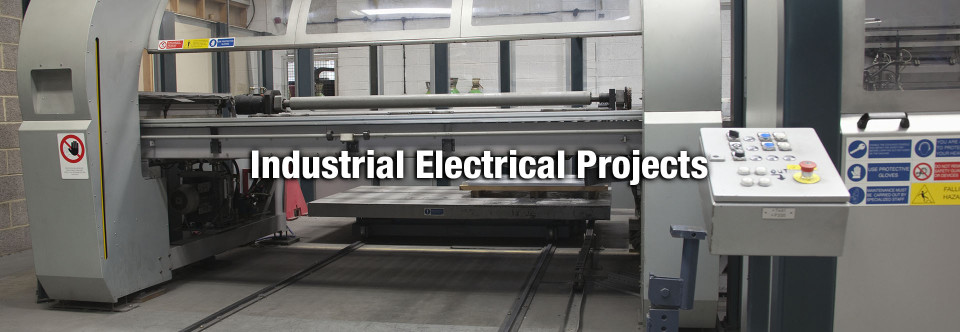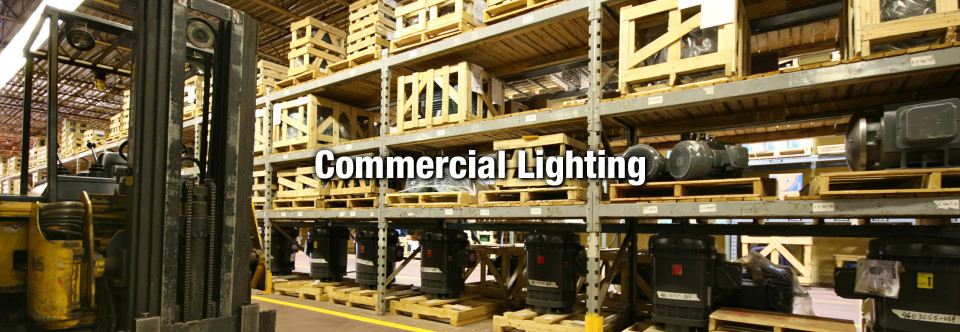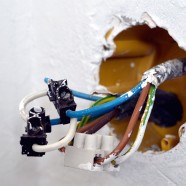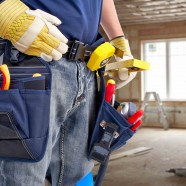"With 27 years in business serving the community of South Florida, Static Electric is your one-stop shop for all business and residential electrical contractor needs."
From new homes through remodeling and renovations, we’ll give you peace of mind that your installation is safe and fully compliant with building codes. In commerce and industry, we’ll ensure the safe and efficient functioning of your business’s electrical operations, help you save money and avoid costly downtimes.
Get Money Back from Tax for Installing a Home Standby Generator
Florida is known as the lightning capital of the country, and between lightning, tropical storms, hurricanes and accidents, power outages are a frequent fact of life. If it’s short-lived it may be just an inconvenience, but if your health or business rely on a steady source of power, even the briefest outage can be a severe problem. The best way to ensure you have a steady source of power is to install a home standby generator.
In addition to the obvious advantages of having a reliable power source, you can also use some of the cost of a generator as a deduction on your federal income tax. With three different ways to take advantage of the tax code, it’s likely that you can find at least one way to deduct a portion of the costs of installing a home standby generator.
Capital Gains Tax Credits
As with all the advice in this post, check with a tax attorney or accountant to determine your individual tax liability and the ability to use any credits. If you sell a home and purchase a new one within a certain amount of time, you’ll avoid paying a capital gains tax on the sale of your old home. If you’ve done this more than once, however, you may still owe taxes on the capital gains. Selling a home and not buying another one will automatically cause you to be liable for the taxes, but if you’ve installed a whole house backup generator, you may be able to take a capital gains tax credit, reducing your tax bill at the end of the year.
Energy Tax Credits
The federal government subsidizes renewable energy such as wind and water, but many states will give you an energy tax credit if you install a natural gas, whole-house generator. This is because natural gas is a greener fuel, creating less of a carbon footprint. If you opt for a home standby generator that has the ability to run on biofuel such as that created in landfills, you may be eligible for an additional tax credit or even an alternate fuel grant. Your state energy department will have all the information needed available for you and your accountant.
Medical Needs
If your doctor will verify that a continuous supply of power is crucial for your health and well being, you may be eligible for a tax credit for your generator. You’ll need to itemize your deductions at the end of the tax year. Once itemized, every bit of legitimate medical expenses over the legal limit, which is 7 to 10 percent of your gross income, is deductible. The power has to be a crucial factor for keeping either you or a family member alive and healthy, and you’ll have to include a certified letter from a medical doctor detailing the medical condition and swearing that a constant power supply is a medical necessity. Depending on your income, you may be able to write off some or even all of the expense of having a backup generator installed in your home.
Natural Disasters
While not a tax deduction, FEMA does offer reimbursements for electrical generators in case of a national or local emergency. The program starts when your governor declares a state of emergency, and it will continue until the power comes back on. Have your whole house backup system installed or buy a portable generator during that time, and you can be eligible for getting the entire cost of the generator reimbursed.
There are multiple ways to reduce the cost of installing a home standby generator, but the benefit of having reliable power is priceless. Call us today to discuss how we can help meet your needs while saving you money.
Read MoreHow to Choose the Right Electrical Contractor for Your Needs
If you’re looking for an electrical contractor in south Florida, you’ll find a confusing array of companies to choose from. How do you find the right electrical contractor for the job? You could Google “electrician” and hope for the best, but that’s not likely to get great results. A little bit of research and common sense questions will go a long way toward finding the right contractor for your particular electrical project.
Your Project
Figuring out what you need to have done will go a long way toward deciding which electrical contractor is right for you. If you’re looking to add lightning protection to your residential electrical system you’ll need an electrician with different experience and education than one who specializes in adding backup power supplies to large businesses. Your electrical contractor in south Florida will probably have experience in multiple areas, but no one can specialize in every aspect of a job. Narrowing down the scope of your proposed project is the first step in deciding which contractor to hire.
Experience on the Job
Knowledge and experience go hand in hand when it comes to technical jobs. The longer an electrician has been actively working, the more situations he has dealt with and the more types of jobs he’s successfully completed. No job site ever went perfectly smoothly, so having an experienced contractor on the job increases the odds that he’s seen the problems before and know how to deal with them. Experienced electrical contractors also know enough about different jobs to give you advice in the planning stage of your project. Whether you’re looking for energy savings or a simpler way to do a job, a contractor with a proven track record has the knowledge to give you intelligent advice.
Paperwork
Ask any prospective contractor to provide you with copies all pertinent paperwork related to the job. These will include:
- Electrician’s license
- Specialty job certificates such as for State Licensed Gas Contractor
- Insurance paperwork, both for your job and the workers on site
- Certificates of completion from any specialty education he may have
If a contractor refuses to give you copies of any of these when asked, turn and walk away no matter what discounts or deals he offers. A deal isn’t a deal if the work is shoddy, or worse, dangerous.
The Workers
Once you hire an electrical contractor in south Florida, how can you be sure who is working in your house or business? Does the electrician have a crew he works with on a daily basis, or will he be contracting out some of the work. There’s nothing wrong with subcontractors, especially when it comes to specialized jobs, but it’s a good idea to know who will do the job ahead of time. The contractor’s insurance may not cover subcontracted labor, he will most likely not have done background checks on them, and unless it’s a team he works with frequently he won’t be able to vouch for them.
If all the work will be done by the contractor’s employees, ask if he’s done background checks on them, how long he’s been working with each person, and the experience of each worker. You’re going to let these people in your home or business; you have the right to know exactly who you’re letting inside.
References for An Electrical Contractor in South Florida
Any experienced electrical contractor with a history of satisfied customers will be happy to provide you with references. Once you have the list in hand, call or email each person on the list and ask about their experiences with the contractor. Find out about the length of time the job took, whether the contractor did what was promised, and whether they were satisfied with the job. Knowing a contractor has a long string of successful prior jobs is a great indication that he’ll do a good job for you, as well.
Read MoreComparing a Standby Generator With a Portable Generator
Power outages are a fact of life in Florida, where there are more lightning strikes per square mile than in any other state. While most blackouts last an hour or less, enough of them last longer that it can become a significant problem. If you have health issues or run a business that relies on a constant source of electrical power, a power outage can be a real danger. This is where a backup power supply comes in.
Backup supplies come in two forms: a standby generator and a portable generator. Both of them convert fuel into electrical power to keep the lights and appliances running on your property. Although a portable generator is less expensive to own, it isn’t a good choice for backup power in your home or business. Unlike portable generators, a built-in standby generator is built for long time use.
Powering a Generator
Portable generators run on gasoline which has to be stored on your property if you want to have it on hand when the power goes out. In a blackout, the pumps at the gas station won’t work, so you have to store your supply ahead of time. This is dangerous many even be illegal in your community. In addition, a portable generator will need to be refilled every few hours, during bad weather or even in the middle of the night.
A standby generator, on the other hand, will run for days on either natural gas or propane. Either one of these fuels is readily available in the absence of electrical power, and you don’t have to worry about dangerous storage problems or about gas getting stale and having to be replaced. The generator will turn itself on when the power goes out, and you don’t have to worry about keeping a fuel supply running to the unit.
Generator Safety
Portable generators can never be run indoors or directly up against your building. They have to be faced away from your structure and an extension cord is used to run power from the unit into your house or business. Combine frequent refueling with extension cords stretching across your property in bad weather and you’ve got an uncomfortably dangerous situation.
With a standby generator, toxic fumes aren’t a concern because your electrical contractor will permanently install it a safe distance from your building. There’s no need to worry about fueling because it will be permanently attached to your home fuel supply. Instead of needing dangerous extension cords strung across your yard, a permanent electrical installation will keep your standby generator attached to the building and ready to supply power when needed.
Risk of Theft
It’s a sad fact but during long-term power outages, one of the biggest problems is people stealing portable generators, usually in the middle of the night. The loud noise is a tip-off to would-be thieves, as are the bright lights shining in an otherwise dark neighborhood. All a thief has to do is to unplug the extension cord and wheel your portable generator away.
If you have a standby generator built into your property, theft won’t be an issue. They’re much less noisy, but, more importantly, yours will be permanently attached to your power and gas lines as well as the base foundation. Thieves like easy work, and pulling out a heavy standby generator is the last thing they’ll want to do when an easy portable unit is probably available somewhere in your neighborhood.
Read MoreReasons to Replace Older Electrical Wiring in Your Home
As long as the lights are shining and the air conditioning is working, most people don’t give the wiring in their home a second thought. Unless you’re the original owner of your house, you’ve got no way of knowing everything you should about the electrical system in your home. Electricians tend to replace what’s needed and worn out, leaving the rest behind in a piecemeal fashion. The result is usually a mixture of old and new wiring with varying abilities to run the appliances you have in your rooms. Replacing the older electrical wiring might be an obvious choice once you start having problems, but there are reasons to renew your system before you start to see troubles.
Room Renovation
When you’re redoing a room in your home, it’s the perfect time for an electrical renovation. Contractors will be knocking down interior walls and making over the interior of your home, why not improve the workings inside as well? It’s the easiest time to replace electrical wiring, since your contractor won’t have any wallboard in the way, and it’s much simpler to find out the condition of the wiring that’s already installed.
Fire Hazards
Worn electrical wiring is one of the most common causes of house fires. If the electrical wiring in your home is cracking, fraying, or falling apart in some other way, the exposed wires cause a real danger of sparking and catching home materials on fire. Here are some of the most common warning signs:
- Frayed wires with the covering cracked or broken and the interior wiring exposed
- Outlet scorch marks. Outlet covers should be cool to the touch. Warm or hot spots usually mean a short in the wire behind the outlet plate.
- Dimming lights when you plug in the vacuum or use the microwave
- Rodent problems. If you’ve had trouble with mice or rats, take the time to inspect your wiring. Rodents love to chew on the coverings of residential electrical wiring
- Circuit breakers tripping. Once is an annoyance. Multiple times means your wiring isn’t up to handling the load you’re asking it to carry
Economics
If you’re going to have your wiring replaced, doing it during a home renovation is the least expensive time frame in which to do it. You won’t have to pay for any demolition needed to get to the wires, and wall repairs have already been budgeted. Upgrading your wiring to a more modern system can save you money in other ways, too. Upgraded systems with the correct amount of outlets can handle home usage easier and will send fewer surges through the system. This can save you thousands of dollars in computer costs if you don’t have an upgraded surge protector installed.
Modern Usage
Think about the electrical appliances you use every day compared to even 10 or 20 years ago. Today’s family typically has at least one computer that runs almost all day as well as HDTVs, elaborate stereo systems, smart appliances, and other belongings that use electricity in increasing amounts. Older wiring was never made to handle these loads, and will short out if asked to cover these loads for any period of time. Upgraded circuit breakers will handle overloads and surges, which additional lines and dedicated systems provide extra computing power for families with multiple work stations for work and school research.
Read MorePurpose and Value of Dedicated Electrical Circuits in Business
Running your business on one complete line is something like making a stew: all the components are mixed together, even if you want to treat one part in a special way. Business owners have been installing dedicated electrical circuits for as long as they’ve been relying on computers for their business needs. As computer technology has improved, so has electrical systems installed into businesses. Any kind of machinery that uses large amounts of power can benefit from a dedicated circuit, but they’re most common for computers and their components.
What a Dedicated Circuit Does
All the wiring in a building usually run together, meeting up at the circuit breaker box. This means the breakers service all electrical usage in the building equally. A dedicated circuit is a separate set of wires and a separate breaker box that only service one particular piece of equipment, most usually a computer or group of computers. This method of wiring insulates the computers in the building from every other piece of equipment, giving you a certain amount of electrical protection. Power fluctuations and overloaded circuits in one system don’t necessarily impact the other one, and electrical repairs are simpler to do because of the minimal amount of wiring to be dealt with.
Benefits of a Dedicated Circuit for Electrical Protection
The main reason for installing a dedicated circuit into your computer area is for electrical protection. Computers are more likely to be damaged by problems with the electrical system, so it’s smart to isolate them into one protected area. Some of the beneficial results of this installation are:
- Higher productivity. Computers will be up and working with fewer glitches and less down time
- Reduced electrical noise. When computers are on general circuits, the simple act of plugging in a vacuum cleaner or turning on a fan can cause fluctuations in the flow of electricity. With a dedicated circuit, you’ll avoid the possibility of these problems
- Reduced risk of electrical fires. Circuits that glitch out can spark and cause fires. Having less power running through each system reduces your fire risk throughout your business. This electrical protection goes for walk-in refrigerators, large air conditioners, oxygen pumps, or any other large piece of equipment that uses a lot of power.
- Less risk of data loss. If you keep your business records in one computer or set of computers, you’re at risk of losing crucial data when you leave your system open to surges and glitches. Isolating the computers into a dedicated circuit can help to protect your important information
Installing a New Dedicated Electrical Circuit
The best time to consider installing dedicated electrical circuits is when you’re putting up a new building or renovating an old one. It’s much simpler to install commercial electrical lines when the walls are already gutted and the joists are exposed. It’s possible for electrical installation to happen after the walls have been put up, though. Setting up a new dedicated commercial electrical system is a job for a commercial professional; sit down with your local licensed electrician and map out your wiring plan together. Much like other forms of insurance, it’s a smart move to have it even if you never need it.
Read More5 Tips for Cleaning Up After an Interior Fit-Up
An interior fit-up makes good business sense. Instead of doing every individual job piecemeal, getting it all done in one sweep will keep your business closed for the shortest amount of time and interrupt the fewest number of days for you and your employees. Even business owners facing new construction benefit from this business-building plan. If your fit-up included electrical installation, and most do, you’re probably left with a large mess to deal with before you can reopen your doors. It’s not just a matter of throwing out the trash. This mess needs special attention.
Disposing of the Dust
If you think dust is just an annoying film that coats your store shelves, you’ve never dealt with the aftermath of an electrical installation. This dust will coat every surface, and stays suspended in the air until you get rid of it. Begin by changing the air filters in your HVAC unit. This is the first line of defense against redeposited dust. Check the filter each day and change it again as soon as it’s needed. Walls are just as likely to harbor dust as floors or shelving. Moisten a towel and wrap it around a broom head, and use the broom to wipe dust from wide expanses of walls. Keep the towel just barely moist to avoid damaging any fresh paint that may have been added.
Livening up the Light Fixtures
The light fixtures are sure to be coated in dust and debris, even if they’ve been newly installed. Use a three-step ladder or other safe device to reach the top of each lighting fixture to remove the dirt. Any soil you knock free will fall onto the dirty room interior, so don’t worry about collecting this or using special tools.
Freeing the Floor of Debris
By this time, you’ve got a floor covered in dirt, dust, and broken materials. Work your way in from the outer edges, picking up the heaviest and bulkiest objects first. This is when the most danger lurks; broken glass, bare wires, and bent nails can be hiding among bits of wallboard or insulation. Use heavy work gloves when picking up discarded objects, or push them outside with a broom or shovel. Once the major pieces of garbage have been removed, sweep the floor. Do it once with a commercial push broom to get rid of the most obvious mess, then move on to a smaller broom or soft dry mop to pick up any remaining dust. Mop the floor, paying close attention to the corners, to finish the floor job.
Inspect Furniture and Appliances
Even if you’ve covered the furniture, a fit-up with electrical installation is such a major piece of work that dust and debris are likely to have worked their way into multiple odd places. Vacuum all the couches, side chairs, and desk chairs. Open all desk drawers and filing cabinets to make sure stray nails or debris haven’t fallen inside. Make a thorough search of the interior of any coffee makers, microwave ovens, or other small kitchen appliances you may have. While dust on the floor is annoying, dirt in your coffee maker can be physically dangerous.
Final Inspections
Once the interior of your business is clean, it’s a great idea to walk through and make sure all the electrical renovations work like you’d planned they would. Turn switches on and off, check every wall outlet with a lamp or other small appliance, inspect lighting fixtures or exit lights that may have been installed to make sure they are cleanly finished and work as expected. Turn on any large equipment such as air compressors or freezers to make sure the power is flowing to them and that they work.
Read MoreImportance of Emergency Exit Signs in Business Premises
The emergency exit signs and lights are among the most important parts of your building’s safety system. In the event of a fire or other building emergency, people can’t always rely upon their personal knowledge when it comes to finding their way outside. Strangers to the building won’t know the best exit routes, and even those familiar with the building layout can become confused. Exit signs and lights have to be bright and clear, able to be viewed through smoke and in darkness. They’re a crucial item on your regular electrical maintenance list.
Regulations
State and federal regulations cover the electrical safety features in your business, and this includes any exit signs and lights attached to them. According to the federal government, signs must be at least 6 inches tall with letters at least 2 inches wide, except the letter “I.” Signs have to be illuminated by a reliable light source. In order to comply with this ruling, most lights are wired to a standby generator to ensure the power to the sign stays on, even during a blackout.
Inspections
Regular inspections ensure that emergency exit signs point in the right direction and remain lit during any emergencies. Electrical maintenance schedules should include changing any light bulbs associated with the sign, both internal and external, as well as inspecting and maintaining the emergency power supply attached to these lights. This may include topping off fuel tanks, lubricating moving parts, or even cleaning the environment around the generator itself. Signs should be securely affixed to the walls, and inspectors should check screws or other fasteners to make sure they haven’t begun to come loose. The law says that all emergency exit signs should be capable of being illuminated for at least 90 minutes without going out. A regular inspection will test this and repair any lights that don’t comply with this ruling.
Placement
The placement of your exit signs is a crucial part of their design. Legally, they have to be no less than 80 inches above the floor to the bottom of the sign. Great care should be taken that the sign isn’t obstructed by any object in any direction. Check nearby doors and other moving objects to make sure they don’t cover the signs at any time. Additional exit signs should be attached next to the door latch, and a sign in Braille should be provided. If you have any large doors in your business building that look like they may be exit doors, regulations say that you have to post a sign stating that this is not an exit.
Benefits
Illuminated exit signs may offer an obvious benefit of pointing the way outdoors during a fire, blackout, or other emergency, but they have secondary benefits, as well. Insurance companies can give discounts to businesses that are compliant with safety regulations. Local governmental authorities sometimes have the power to levy fines and punishments if you don’t comply with the laws. Also, in case of any type of emergency, having abundant lighted exit signs all over your business can help to prevent frivolous lawsuits after the fact. Unfortunately, people will sue for almost any reason, and any evidence you have that can prove you took logical precautions is a large point in your favor.
Read More












Recent Comments